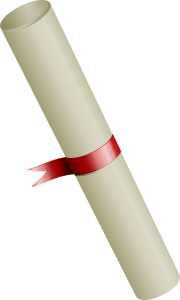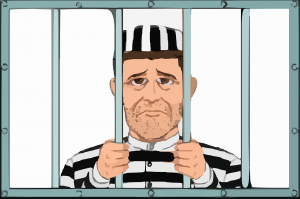11
December
Diploma of Family History – University of Tasmania
 I've written before about the Diploma of Family History that I have been undertaking at the University of Tasmania. Well, today I lodged my last assignment to complete the course. I have now successfully undertaken the required 8 units in order to receive my Diploma. I have loved this course. Even as a seasoned genealogist, I have learned so much in this course. Today I will give you an overview of the diploma to see if it is right for you.
I've written before about the Diploma of Family History that I have been undertaking at the University of Tasmania. Well, today I lodged my last assignment to complete the course. I have now successfully undertaken the required 8 units in order to receive my Diploma. I have loved this course. Even as a seasoned genealogist, I have learned so much in this course. Today I will give you an overview of the diploma to see if it is right for you.
Units
This fully online course consists of nine units but you are only required to complete four foundation level units and four 100-level units to receive your diploma. There are five foundation level units and four 100-level units. Each unit is of approximately 6 weeks duration with content released weekly, often including, one-week study break during the unit. Each unit has assessment unique to that unit and can include, but is not limited to, quizzes, essays, and oral recordings.Foundation Level Units
Introduction to Family History - as the title would suggest, this unit gives you a very good overview of genealogy and how to start your research. This unit gave a good introduction to researching and provided me with some new skills even though I went in thinking I knew it all! Writing Family History - this unit teaches you to write little stories, both fiction and non-ficiton, based on the records you have found. I loved this unit and have showcased some of the stories I wrote in Stories Under the Tree and The Lives of the Tree. Place, Image, Object - this unit taught me how to care for, and write about, significant items associated with my ancestry. I must admit this was my least favourite unit of all of them. However, I did learn some great skills throughout it - you can read my Object Biography, the final assignment for the unit.
Convict Ancestors - in this unit we were shown how to access the wealth of resources available for Australian convicts. I LOVED this unit and have showcased what I learned about my convict ancestor, George Brand, here.
The Photo Essay: An Introduction - This unit aims to teach people to create a photo essay by bringing images and words together. Unfortunately, this unit was not available when I first started the diploma last year and by the time it became available I had undertaken all my foundation level units.
Place, Image, Object - this unit taught me how to care for, and write about, significant items associated with my ancestry. I must admit this was my least favourite unit of all of them. However, I did learn some great skills throughout it - you can read my Object Biography, the final assignment for the unit.
Convict Ancestors - in this unit we were shown how to access the wealth of resources available for Australian convicts. I LOVED this unit and have showcased what I learned about my convict ancestor, George Brand, here.
The Photo Essay: An Introduction - This unit aims to teach people to create a photo essay by bringing images and words together. Unfortunately, this unit was not available when I first started the diploma last year and by the time it became available I had undertaken all my foundation level units.
100-Level Units
Writing the Family Saga - this unit further developed skills learned in Writing Family History by drawing on inter-generational knowledge to create stories. I loved this unit as I am a huge fan of historical fiction such as the many books by Judy Nunn - I must admit to having a secret desire to write a novel like hers! Convicts in Context - this unit further developed what was learned in Convict Ancestors and taught me how to put my convict, George Brand, into the world around him.
Oral History - this unit taught me skills to conduct and record interviews to tell a narrator's story. This was my final unit and I have just lodged my final assignment. It was very interesting and a skill I wish I had of learned many years ago. I have missed the opportunity to use this skill set with older generations who have since died.
Families at War - another very interesting unit that taught me where to find war records for my various ancestors. I learned a lot about putting my soldiers into a wider context of the military unit they served with by using unit diaries to follow them in their war.
Convicts in Context - this unit further developed what was learned in Convict Ancestors and taught me how to put my convict, George Brand, into the world around him.
Oral History - this unit taught me skills to conduct and record interviews to tell a narrator's story. This was my final unit and I have just lodged my final assignment. It was very interesting and a skill I wish I had of learned many years ago. I have missed the opportunity to use this skill set with older generations who have since died.
Families at War - another very interesting unit that taught me where to find war records for my various ancestors. I learned a lot about putting my soldiers into a wider context of the military unit they served with by using unit diaries to follow them in their war.
Career Outcomes
The University of Tasmania website states:
Students who complete a Diploma of Family History could potentially work in the following fields: family history and genealogical research, creative writing, non-fiction writing, cultural and/or heritage tourism, local and regional museums, history and heritage consultancies, local and community history organisations, adult education, archives and library information systemsWhilst it does give a great overview of the field of genealogy I believe further study would be required in order to make genealogy a career. People in the United States are spoiled for choice in genealogy courses that would enable people to go on to make this a career. Unfortunately, in Australia, we are only just beginning to offer these types of courses. I really hope that the University of Tasmania continues to grow their offerings to offer an Advanced Diploma.
Cost

Other bonuses
Whilst you are enrolled in this course you have access to databases and library resources that the University of Tasmania has available. This includes the Library Edition of Ancestry.com.Conclusion
I really enjoyed the Diploma of Family History and feel it is a great course for novices and experienced genealogists alike. I hold an undergraduate degree and so was used to the university way of conducting research and writing assignments. I didn't find the assessments too taxing, but know some people did struggle with preparing assessments. However, there was always someone to help, either by contacting a tutor direct, or asking a question on the unit forum. There are also Facebook groups that students can join for each unit to get some peer support. The skills you would gain out of doing a genealogy course would be invaluable to your research. You may find records, like I did, that you didn't know existed.

Hi Megan
I live in Perth WA but spent my early childhood living at Moonah, Tasmania. I am now 74 years old and been interested and doing genealogy since the late 1980’s. My mum died when I was about 8 or 9 and we left Tas not long after (1956) and didn’t keep in touch with her family. Her maiden name was Riseley and in about 1990 on a visit to my older sister in Hobart, I discovered Maria Riseley, my 3 times great aunt and her brother John Riseley, my great, great grandfather, who were both in Hobart in the early 19th century. Maria started as a convict, but you are probably aware of her history.
At a West Australian Genealogy meeting last Sunday, they mentioned the above course at UTAS and said it was currently available free. Do you have any details of this, as the course was well recommended, but being an aged pensioner, I can’t afford normal fees.
Hope this message is appropriate,
Kind regards
John Browne
Hi John
Lovely to hear from you.
The UTAS Family History Diploma as a 100% HECS Scholarship for their foundation units. At time of writing these are Introduction to Family History; Photo Essay; Place, Image, Object; Writing Family History; and Convict Ancestors. So that is 5 units for free. To complete the diploma you would need to do another 3 units. You can look into this further here.
As an aged pensioner you could defer the fees for the last 3 units onto HECS. Usually you wouldn’t start paying back HECS until you are earning $45,881 per annum. If you are solely on a pension I would expect you would not need to pay it off – but definitely check that eligibility with the ATO, click here for further information.
I hope this has answered your questions. Look forward to hearing from you soon.
Regards
Megan
I love this website! For many years I have been interested in knowing where I came from. I live in Florida, am an African-American with no idea of my ancestry. I am going to click on every’s site you have here especially the one on the home page up top. I am about to find out who I am and where I came from thank you so much.
Congratulations on getting your diploma. What will you do next?
Hi Sylvia
I am so glad you are finding this site helpful. I hope that you are able to find some information regarding your ancestors – try looking into Plantation home records as they often kept books about the purchase and sale of slaves. Thank you – I was so pleased to finish my Diploma! All of us who have undertaken it are hoping UTAS will bring out an Advanced Diploma in the near future. In the meantime I have a Family History Holiday to prepare for towards the end of the year!
Regards,
Megan
Now I know why you have covered convicts in your family tree on this site, lol.
It does seem a pricey course to take, so a scholarship is a good option. Is that easy to apply for?
Also, do you have to take the course at set times? I feel like I could really gain something from this course but what with a hectic lifestyle, (work and family commitments), I feel that I may not be able to give the course my all.
Hi Owain
The units only go for about 6-8 weeks each but have set start and finish times. Most people just do one unit at a time which, at this rate, takes about 2 years to complete. You normally spend about 4 hours per week on coursework when a module is released weekly and there are set assignments on top of this. For a “university” course it is actually very light especially compared to the degree work I have done in the past. The scholarship is automatically applied to anyone who is eligible under the government Help Fees scheme. I actually found this course a nice break for me as I enjoyed it and it allowed me some me time! I also did some invaluable research into my family tree and learned things I may not otherwise have known.
Regards,
Megan
This actually seems quite interesting. I’ve read a few of your other posts and I see that this has helped you find out a lot about your family history. I think it would be cool to know this stuff about my own family history. I’m currently doing a part time course which is keeping me busy but maybe I’ll look into something like this in future.
Hi Yusuf
I love to learn new things or further educate myself on my current interests. This course did exactly that and I think it is great that you are undertaking a course that interest you. What course are you doing at the moment?
Regards,
Megan